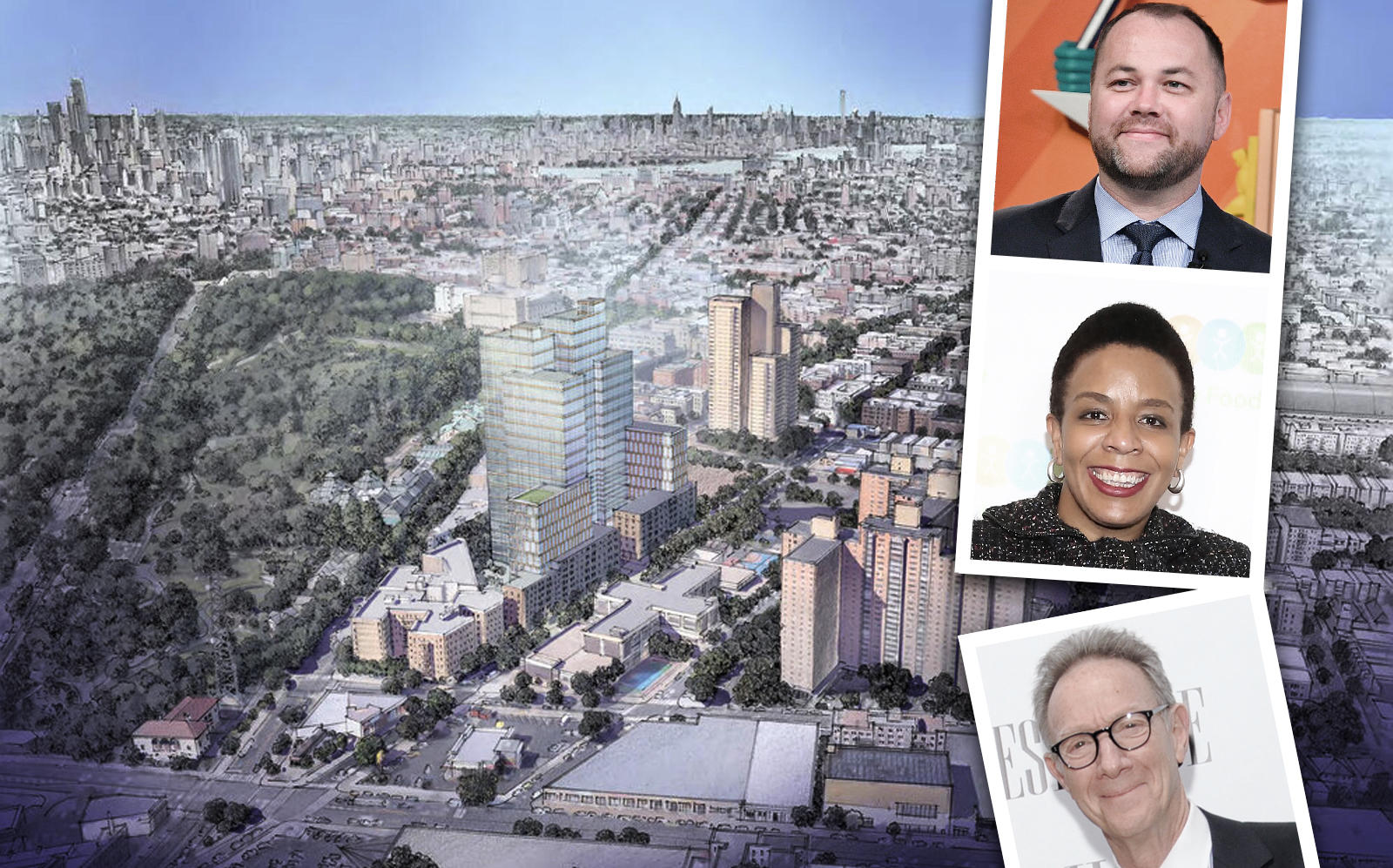City Council leaders just put another nail in the coffin of Bruce Eichner’s big Crown Heights project.
City Council Speaker Corey Johnson and Crown Heights Council member Laurie Cumbo issued a joint statement denouncing the rezoning Eichner requested to build his two 35-story tower project at 960 Franklin Avenue.
At the crux of the issue are concerns that the apartment towers’ shadows would damage horticulture at the Botanic Garden, Brooklyn’s top tourist attraction.
“The Brooklyn Botanic Garden is a priceless public asset that must be preserved for generations to come and we will not support any proposal that will harm the Garden,” the joint statement said.
The announcement came just after the City Planning Commission voted on Monday to certify the rezoning proposal, which is not an approval but starts the seven-month public review that leads to a City Planning Commission vote, a Council vote and a mayoral sign-off.
Development proposals often face opposition at the outset of the process and are altered substantially during negotiations. But the early objections to Eichner’s Continuum project have been unusual: Not only did the Council speaker savage it, but last month Mayor Bill De Blasio came out against it.
The backlash raises the possibility that the elected officials will demand height reductions so severe as to make the project uneconomical, given Eichner’s plan to make half of its apartments affordable.
Eichner has expressed a willingness to go back to the drawing board. But withdrawing the application would compel him to start from scratch, costing the project substantial time and money.
De Blasio’s opposition to the development shocked opponents and supporters alike, as de Blasio had endorsed the project in February 2020 when a critic of it called him on Brian Lehrer’s radio show. Although his office later said he was confusing the project with another one nearby, his sentiments about housing affordability being more important than shadows seemed to bode well for Eichner.
“I don’t think it ruins the garden forever. I just don’t. I don’t take that position,” the mayor said at the time. “I would love it if we could have a city that could be a city for everyone and affordable and we could keep some of the exact scale and aesthetics we had previously. I would love it if we could achieve those things, but we’re in this new world.”
But in a later statement, de Blasio said the project was “grossly out of scale with the neighborhood” and would inhibit plant growth at the garden.
Eichner had said the project would have helped reduce the city’s need for affordable housing. About half of the 1,578 units of housing would be below market rate, according to the developer.
The mayor’s reversal was also a blow to unions, who were in line to build, finance and work in the project.
De Blasio said that the Franklin Avenue development “would harm the research and educational work carried out by one of this city’s prized cultural institutions.”
